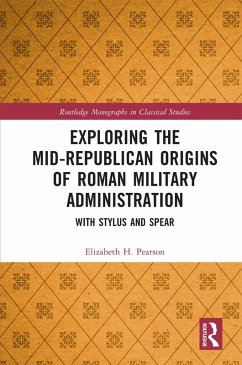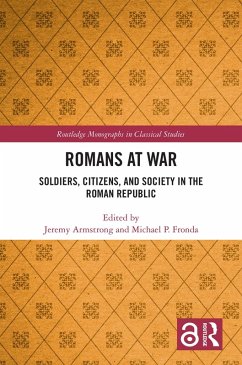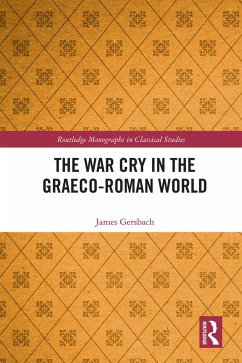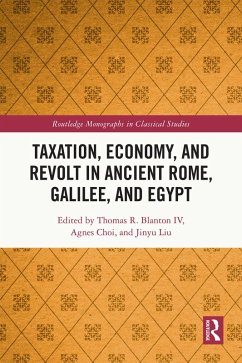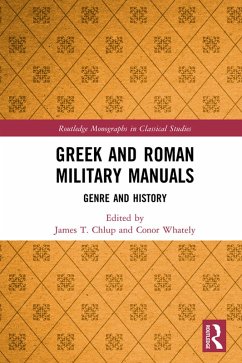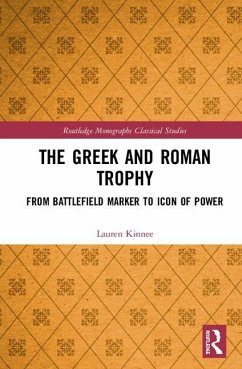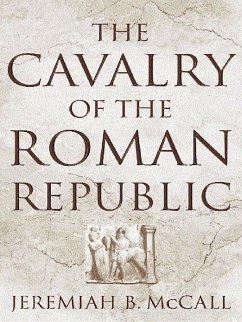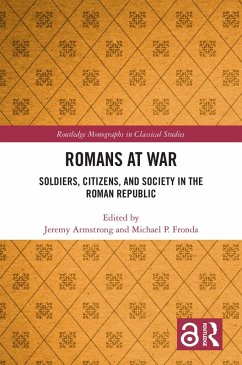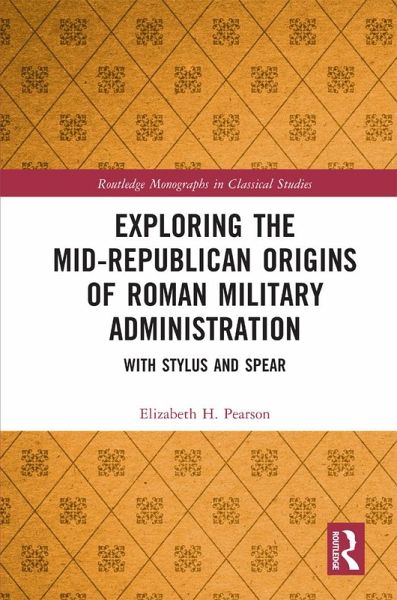
Exploring the Mid-Republican Origins of Roman Military Administration (eBook, PDF)
With Stylus and Spear
Versandkostenfrei!
Sofort per Download lieferbar
39,95 €
inkl. MwSt.
Weitere Ausgaben:

PAYBACK Punkte
20 °P sammeln!
This volume demonstrates the development of Roman military bureaucracy during the Middle Republic, expanding on recent research to examine these administrative systems that made possible Rome's expansion in this period.Bringing together literary works, epigraphy, archaeology, topography and demography, the study reveals a complex and well-structured bureaucratic system developing in parallel with the army during the Middle Republic, propelled in no small part by the stresses of the Hannibalic War. Not only the contents of documents, but the physical objects, individuals and spaces are discusse...
This volume demonstrates the development of Roman military bureaucracy during the Middle Republic, expanding on recent research to examine these administrative systems that made possible Rome's expansion in this period.
Bringing together literary works, epigraphy, archaeology, topography and demography, the study reveals a complex and well-structured bureaucratic system developing in parallel with the army during the Middle Republic, propelled in no small part by the stresses of the Hannibalic War. Not only the contents of documents, but the physical objects, individuals and spaces are discussed to re-create the administrative processes in maximum detail.
Exploring the Mid-Republican Origins of Roman Military Administration provides an invaluable resource for students and scholars of Rome's military and administrative history, as well as anyone working on the Republican period.
Bringing together literary works, epigraphy, archaeology, topography and demography, the study reveals a complex and well-structured bureaucratic system developing in parallel with the army during the Middle Republic, propelled in no small part by the stresses of the Hannibalic War. Not only the contents of documents, but the physical objects, individuals and spaces are discussed to re-create the administrative processes in maximum detail.
Exploring the Mid-Republican Origins of Roman Military Administration provides an invaluable resource for students and scholars of Rome's military and administrative history, as well as anyone working on the Republican period.
Dieser Download kann aus rechtlichen Gründen nur mit Rechnungsadresse in A, B, BG, CY, CZ, D, DK, EW, E, FIN, F, GR, HR, H, IRL, I, LT, L, LR, M, NL, PL, P, R, S, SLO, SK ausgeliefert werden.




